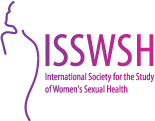ISSWSH in collaboration with the North American Menopause Society (NAMS) is publishing consensus recommendations for the management of genitourinary syndrome of menopause in women with or at high risk for breast cancer. The consensus recommendations will assist healthcare providers in managing GSM with a goal of improving the care and quality of life for these women. Genitourinary syndrome of menopause is more prevalent in survivors of breast cancer, is commonly undiagnosed and untreated, and may have early onset because of cancer treatments or risk-reducing strategies.
ISSWSH is pleased to announce and recognize the Centers for Medicare and Medicaid Services (CMS) clarification of the statutory intent of “Prescription Drug Benefits” section 1860D-2(e)(2)(A) of the Social Security Act, stating that drugs for the treatment of moderate to severe dyspareunia (pain during sexual intercourse) due to menopause, are not excluded from Medicare Part D coverage when used consistent with this labeling.
The International Society for the Study of Women’s Sexual Health (ISSWSH) is pleased to announce the publication of its Process of Care for Management of Hypoactive Sexual Desire Disorder (HSDD) in Women in Mayo Clinic Proceedings. This milestone publication is the first to provide a consensus clinical management algorithm for the diagnosis and treatment of HSDD.
This Sunday, March 4th the International Society for the Study of Women’s Sexual Health (ISSWSH) will be joining forces with around 80 organizations worldwide to commemorate the 1st annual International HPV Awareness Day. The goal of the day is to spark conversation and promote a worldwide exchange of ideas, knowledge, and research materials about human papillomaviruses (HPV) and their associated diseases.
ISSWSH welcomes Dr. James A. Simon, M.D., Clinical Professor of Obstetrics and Gynecology at The George Washington University School of Medicine in Washington D.C., as its new President.
Hypoactive sexual desire disorder: international society for the study of women’s sexual health (ISSWSH) expert consensus panel review, authored by ISSWSH members Irwin Goldstein, Noel Kim, Anita Clayton, Leonard DeRogatis, Annamaria Giraldi, Sharon Parish, Jim Pfaus, and James Simon, has been recommended in F1000Prime as being of special significance in its field.
F1000 provides a rapidly updated consensus map of the important articles and trends across biology and medicine through the opinions and perspectives of over 10,000 peer-nominated international experts, the F1000 Faculty.
Studies suggest that the benefits of short-term treatment to control menopausal symptoms outweigh the risks - as long as it is started at or near menopause.
Read more
